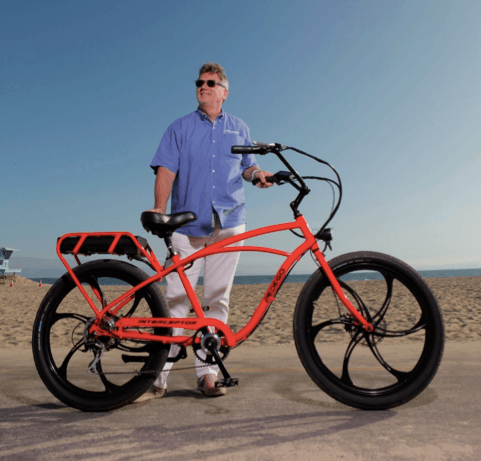By Don DiCostanzo
Editor's note: DiCostanzo is the founder and CEO of Pedego, which sells licensed locations that sell Pedego e-bikes. The brand has sold more than 140 locations in the U.S.
The recent Chapter 11 bankruptcy filing by the owners of Performance Bicycle should make it clear to anyone who is paying attention: The future of bicycle retail is in single-branded stores. It's more evident if you look at other recent retail failures — Brookstone, Circuit City, RadioShack, Toys R Us, Sports Authority, Sport Chalet and Sears. The decline of multibrand retailers is undeniable. In contrast, look at the successful single-branded retail concepts like Apple, Nike, Tesla, Victoria's Secret, Starbucks, Prada, Tiffany and Tommy Bahama.
Shopping today is all about the experience. It has to be a pleasure for the consumer. Multibrand retail stores make it a nightmare for the consumer and the retailer. Varying colors, styles, sizes, components and warranties among different brands make it a challenge for everyone. The multibrand stores also have to go it alone without the genuine support of the brands they stock.
One of the most successful ongoing retail business models is the car dealership. How many brands do they carry in a single location? General Motors used to have Buick, Cadillac, Chevrolet, GMC, Oldsmobile, Pontiac and Saturn, with many of them in a single location. The survivors: Buick, Cadillac and Chevrolet, are almost all now housed in individual rooftops. The are no more Ford-Lincoln-Mercury dealerships.
If we relate this to the bicycle retail business, successful tier-one brands that have their own single-branded stores are clearly performing better than the rest of the industry. Giant, Pedego, Specialized and Trek are winning because they are focused on single-brand locations and offer a tier-one brand. Performance carries multiple tier-two brands that need to be discounted to be sold. Tier-two customers are bargain hunters. They will search everywhere and anywhere for a discount. Discounts are the death of proper retailers.
Do you think Apple, Nike, Tesla, Victoria's Secret, Starbucks, Prada, Tiffany and Tommy Bahama customers are bargain hunters? Their customers are trained to know that they won't find these brands on Amazon and won't find discounts online. As Performance proved, discounting is the wrong answer for brick and mortar. Online shoppers are typically discount seekers and will showroom shop and then likely buy online if they can find some at a lower price elsewhere. Tier-two brands typically sell online because they have to in order to survive.
Top-tier brands typically do not spend their marketing dollars to drive prospects to multibrand stores. Why should they? The risk of sending a customer to a store to buy their brand only to have the customer leave with another is real.
While there are some tier-one brands that sell through multibrand retailers, the trend is obvious. Keep in mind that Performance is failing in good economic conditions. When we have a downturn, who do you think is going to survive?
It is becoming more about survival of the fittest, and those brands — in any industry — that have invested in grabbing the mind share of the consumer will most likely be here in five years. All others, more likely not.


